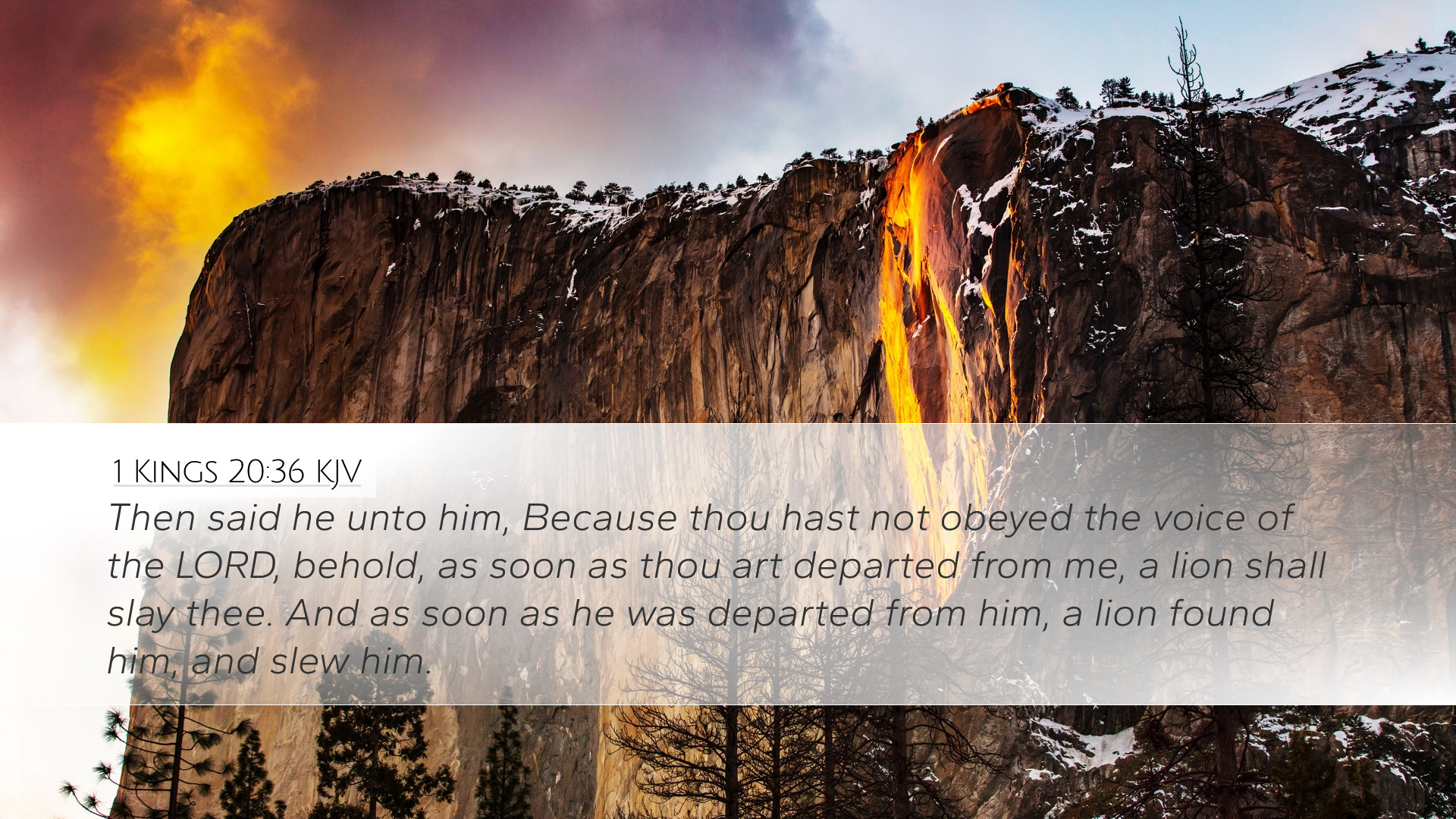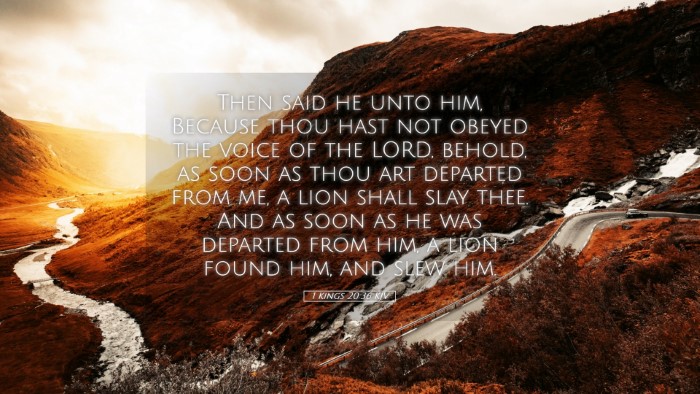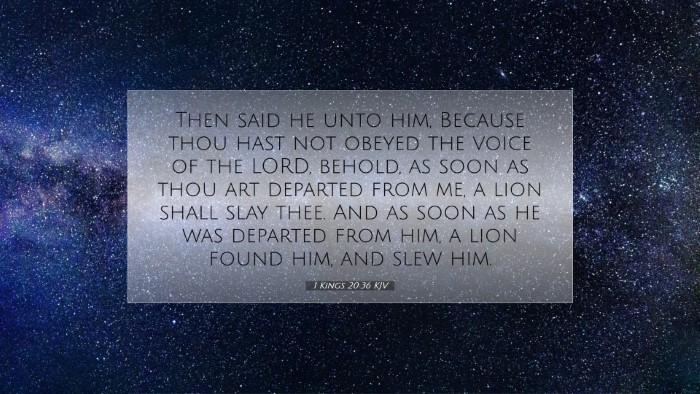Commentary on 1 Kings 20:36
1 Kings 20:36 states, "And he said unto him, Because thou hast heard all the words of the Lord, take heed to thyself, and see that thou be not very disobedient; for you shall fall into a snare." This verse is a critical moment in the narrative of Ahab's conflicts and serves to illustrate the broader themes of obedience, prophecy, and divine judgment.
Contextual Analysis
To fully understand 1 Kings 20:36, one should consider the surrounding events. Ahab, the king of Israel, had previously been granted victory over Ben-Hadad, the king of Aram, due to the mercy of God. However, Ahab’s disobedience to God’s commands led to significant consequences. This verse conveys a direct warning from a prophet which emphasizes the weight of divine admonition.
The Role of the Prophet
The prophet's warning in this passage serves as a reminder of the prophetic tradition in the Israelite religion. As noted by Matthew Henry, prophets were often employed by God to convey timely and crucial messages. In this instance, the prophet warns Ahab to consider the severity of his actions. Such admonitions highlight the responsibility of leaders in heeding divine guidance.
Interpretation by Matthew Henry
Matthew Henry stresses the importance of being attentive to God's Word. He suggests that Ahab's ear had become dull to divine instruction, leading him to act foolishly. Henry places an emphasis on the dire consequences of neglecting God's message, stating that negligence leads to spiritual blindness and moral pitfalls.
Insights from Albert Barnes
In accordance with Albert Barnes, the phrase "take heed to thyself" indicates a personal responsibility that falls upon Ahab. Barnes elaborates that the king's errant path would result in inevitable calamity, paralleling this warning to the nature of judgment for those who refuse to heed God's counsel. Barnes notes that the urgent tone of the exhortation is noteworthy, emphasizing the seriousness of disobedience to God.
Adam Clarke’s Perspective
Adam Clarke provides a critical examination of the phrase "see that thou be not very disobedient." Clarke interprets this as a stern admonition, implying that Ahab’s prior disobedience had brought him to the threshold of ruin. He emphasizes that the prophet's message encapsulates a broader theological truth: that God will hold leaders accountable for their choices. Clarke asserts that understanding the moral implications of leadership is crucial, particularly in the context of spiritual governance.
Theological Implications
This verse raises significant theological questions regarding the relationship between obedience and consequences. It reveals the nature of God as a just judge who requires obedience from His people. The verse acts as a warning that dismissing divine counsel leads to dire spiritual, and often physical, ramifications.
God’s Justice and Mercy
The duality of God’s justice and mercy is evident. While Ahab is warned, there remains a glimmer of hope that he could turn from his current path. Matthew Henry poses an important inquiry: Can the grace of God move even a stubborn heart? The persistent opportunities for repentance signify God's mercy.
The Weight of Leadership
The link between leadership and divine accountability is pivotal. Ahab's decisions affect not just his fate, but also the entire nation of Israel. Albert Barnes posits that leaders are tasked with an important role to lead their followers in righteousness. The passage challenges contemporary leaders within various spheres—religious, political, and social—to reflect on their responsibilities before God and their communities.
Practical Workings of Obedience
Applying the lessons of this verse involves more than academic understanding; it requires a transformative approach to our own obedience to God.
- Personal Reflection: Individuals should assess their own responsiveness to God’s directives. Are they cultivating a listening heart, or are they ignoring divine warnings?
- Leadership Accountability: Leaders must acknowledge their influence on others and recognize the weight of their decisions.
- Community Engagement: Churches and communities centered in biblically grounded teaching can foster environments that encourage obedience and conversation about divine directives.
Conclusion
1 Kings 20:36 is a poignant reminder of the responsibilities borne by leaders and the serious nature of obedience to divine instruction. Echoing insights from Matthew Henry, Albert Barnes, and Adam Clarke, this verse invites us to deeply consider our relationship with God and the outcomes of our actions. As we navigate our own paths, may we heed the warnings and embrace the call to live in obedience, reflecting the character of God in our lives and communities.


